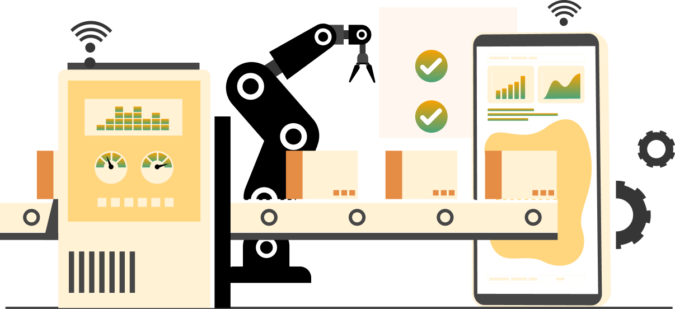Artificial intelligence (AI) has been revolutionizing many industries, and the manufacturing industry is no exception. AI is helping manufacturers improve efficiency, reduce costs, and increase productivity. In this essay, we will discuss how AI is transforming the manufacturing industry and the applications of AI in manufacturing.
AI in Manufacturing: An Overview
AI is a branch of computer science that aims to create intelligent machines that can perform tasks that typically require human intelligence, such as visual perception, speech recognition, decision-making, and natural language processing. AI has several applications in manufacturing, including predictive maintenance, quality control, supply chain optimization, and process automation.
Predictive Maintenance
Predictive maintenance is a process that uses data analysis and machine learning algorithms to predict when equipment is likely to fail. AI-powered predictive maintenance systems can analyze large amounts of data collected from sensors, historical maintenance records, and other sources to detect anomalies and identify patterns that indicate potential equipment failures. This can help manufacturers schedule maintenance activities before a failure occurs, reducing downtime and increasing equipment lifespan.
Quality Control
AI can be used to improve the quality of manufactured products by identifying defects and anomalies that may be missed by human inspectors. AI-powered visual inspection systems can analyze images and videos of products and components to identify defects such as scratches, cracks, and discoloration. These systems can also analyze data from sensors and other sources to identify anomalies in products and processes.
Supply Chain Optimization
AI can help manufacturers optimize their supply chains by providing real-time insights into inventory levels, demand forecasts, and shipping schedules. AI-powered supply chain management systems can analyze data from multiple sources, including sales forecasts, production schedules, and shipping data, to identify inefficiencies and opportunities for improvement. This can help manufacturers reduce inventory costs, improve delivery times, and increase customer satisfaction.
Process Automation
AI can be used to automate many manufacturing processes, such as assembly, packaging, and inspection. AI-powered robots and other machines can perform repetitive tasks with high precision and accuracy, reducing the risk of human error and increasing efficiency. This can help manufacturers increase production volumes, reduce costs, and improve product quality.
Applications of AI in Manufacturing
Predictive Maintenance
One of the most significant applications of AI in manufacturing is predictive maintenance. AI-powered predictive maintenance systems can analyze data from sensors, historical maintenance records, and other sources to detect anomalies and identify patterns that indicate potential equipment failures. This can help manufacturers schedule maintenance activities before a failure occurs, reducing downtime and increasing equipment lifespan.
Quality Control
AI can be used to improve the quality of manufactured products by identifying defects and anomalies that may be missed by human inspectors. AI-powered visual inspection systems can analyze images and videos of products and components to identify defects such as scratches, cracks, and discoloration. These systems can also analyze data from sensors and other sources to identify anomalies in products and processes.
Supply Chain Optimization
AI can help manufacturers use ERP to optimize their supply chains by providing real-time insights into inventory levels, demand forecasts, and shipping schedules. AI-powered supply chain management systems can analyze data from multiple sources, including sales forecasts, production schedules, and shipping data, to identify inefficiencies and opportunities for improvement. This can help manufacturers reduce inventory costs, improve delivery times, and increase customer satisfaction.
Process Automation
AI can be used to automate many manufacturing processes, such as assembly, packaging, and inspection. AI-powered robots and other machines can perform repetitive tasks with high precision and accuracy, reducing the risk of human error and increasing efficiency. This can help manufacturers increase production volumes, reduce costs, and improve product quality.
Predictive Maintenance for Assets and Machinery
Predictive maintenance can be applied not only to manufacturing equipment but also to assets and machinery used in the manufacturing process.
Quality control: AI can be used to detect defects in products using computer vision and machine learning, reducing the need for manual inspection and improving accuracy.
Process optimization: AI can analyze data from manufacturing processes to identify areas for optimization, such as reducing waste, improving efficiency, and increasing yield.
Autonomous vehicles: AI-powered vehicles can be used for material handling, reducing the need for manual labor and increasing safety.
Collaborative robots: AI-powered robots can work alongside human workers, performing repetitive or dangerous tasks and increasing productivity.
Energy management: AI can optimize energy usage in manufacturing plants, reducing costs and minimizing the environmental impact.


